List of Important Days in July
General Awareness section is one of the important section in any competitive exam. The static part of General Knowledge weighs more than 50% of the General Awareness section, therefore, one has to focus on its various sub-topics and Important Days is one such sub-topic. Have a look at the detailed list of Important Days in June. The list has been prepared keeping in mind the type of question that can be asked from this sub-topic.
1. July 1: National Doctor’s Day
- The day is celebrated every year on 1 July to commemorate the contribution of Dr. Bidhan Chandra Roy, former CM of West Bengal, to the health care industry in India.
- Dr. Roy was born on 1 July 1882 and died on 1 July 1962.
- Dr. Roy was honoured with Bharat Ratna in 1961.
- The day also honour the contributions of the doctors to individual lives and communities.
- The role of doctors during the current global pandemic is praiseworthy.
- The first National Doctor's day was celebrated in July 1991.

2. July 1: Chartered Accountants Day
- Chartered Accountants Day is observed every year on 1 July.
- On this day in 1949, the Institute of Chartered Accountants of India (ICAI) was formed by an Act of Parliament.
- The theme of Chartered Accountant Day 2020 is- “Transforming the Future, Enabled Excellence, Augmenting Trust.”
- This year the Institute of Chartered Accountants of India also organized Virtual National CA Summit 2020 from 29 June to 1 July 2020.
- Indian Institute of Chartered Accountants (ICAI):
- It is the national accounting body of India.
- It is the second largest professional accounting and finance body in the world in terms of members.
3. July 2: World UFO Day
- World UFO Day is observed every year on 2 July to raise awareness regarding unknown flying objects. While some people celebrate it on 24 June.
- On June 24, aviator Kenneth Arnold reported for the first time a widely visible unknown flying object in the United States. While on 2 July 1947, Roswell allegedly saw a UFO.
- UFO (Unidentified Flying Objects):
- The term is widely used for supernatural spacecraft.
- An unknown flying object is any aerial event that cannot be immediately identified or explained.
- Most UFOs are identified on investigation as traditional objects or phenomena.
4. July 6: World Zoonoses Day
- World Zoonoses Day is observed every year on 6 July to commemorate the successful administration of the first vaccine against a zoonotic disease.
- The day aims to raise awareness regarding the spread of zoonotic diseases.
- Louis Pasteur successfully administered the first vaccine against Rabies virus on 6 July 1885.
- Zoonoses are the infectious diseases that spread from animals to humans through direct contact with infected animals. These can be caused by bacteria, virus or parasites.
- The most common zoonoses diseases are Plague, Rabies, Tuberculosis, Scabies, Roundworms, etc.
5. July 11: World Population Day
- Since 1989, World Population Day has been celebrated every year on 11 July to mark the day in 1987 when the world's population reached 5 billion.
- The day aims to create awareness regarding the urgent need to address the population issues.
- The current global population is around 7.8 billion, which is likely to reach 9.7 billion by 2050.
- Some 47 million women in 114 low- and middle-income countries are estimated to be unable to use modern contraceptives if the average lockdown, or COVID-19-related disruption, continues for 6 months with major disruptions to services.
- Theme: "Putting the brakes on COVID-19: Safeguarding the health and rights of women and girls"
- "Almost half of the population of the world lives in rural regions and mostly in a state of poverty. Such inequalities in human development have been one of the primary reasons for unrest and, in some parts of the world, even violence" -A P J Abdul Kalam
6. July 15: World Youth Skills Day.
- World Youth Skills Day is observed every year on 15 July.
- The day aims to raise awareness among youth about the development of technical, vocational education training and other skills relevant to both local and global economies.
- This year's theme is – “Skills for a Resilient Youth”
- In November 2014, the United Nations General Assembly declared 15 July as World Youth Skills Day.
- Prime Minister Narendra Modi addressed a digital conference on the occasion of World Youth Skills Day. The conclave is organized by the Ministry of Skill Development and Entrepreneurship.
- This year marks the fifth anniversary of the launch of the Skill India Mission.
7. July 17: World Day for International Justice
- Every year on 17 July, World Day for International Justice is observed to mark the adoption of the Rome Statute for the International Criminal Court (ICC) in 1998.
- The Day is also called International Justice Day or International Criminal Justice Day.
- The day provides the platform to unite all those who support justice, promote victims' rights, prevent crimes against humanity, etc.
- International Criminal Court (ICC):
- It is an intergovernmental organization that can prosecute individuals for international crimes like war crimes, crimes against humanity, genocide, etc.
- Its headquarters are located in The Hague, Netherlands.
- It started functioning in 2002 when the Rome Statute came into force.
- Current President: Chile Eboe-Osuji
- Members: 123
8. July 18: International Mandela Day
- Every year on 18 July, on Mandela's birthday, an annual International Day is celebrated in his honor, called Mandela Day or International Mandela Day.
- The day was officially declared by the United Nations in November 2009.
- Nelson Mandela:
- Mandela, South Africa's first black president, Nobel laureate and anti-apartheid, was a great man.
- Nelson Mandela was born on 18 July 1918 in South Africa.
- He had dedicated his life fighting for human rights.
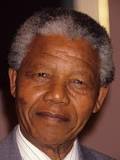
9. July 19: Birth Anniversary of freedom fighter Mangal Pandey
- On 19 July 2020, Union Home Minister Amit Shah remembered and paid tribute to freedom fighter Mangal Pandey on his birth anniversary.
- Mangal Pandey was born on 19 July 1827 in Nagwa, Uttar Pradesh, into a Brahmin family.
- He joined the Bengal Army in 1849. In March 1857, Pandey was a private soldier in the 5th Company of the 34th Bengal Native Infantry.
- He was instrumental in the events preceding the outbreak of the Indian Rebellion of 1857, also known as the First War of Independence.
- He was hanged on 8 April 1857.
- In 1984, the Government of India issued a postage stamp to remember him.
10. 22 July: Pi Approximation Day
- Pi Approximation Day is celebrated every year on 22 July.
- This day is celebrated on 22 July because the approximation value of pi (22/7) is equal to 22/7 date.
- Pi:
- This is a mathematical constant. It is represented by a Greek letter π.
- In 1706, pi was introduced by William Jones.
- It is the ratio of the circumference of a circle to its diameter.
- Its value is 22/7 or 3.14. A pi is an irrational number and cannot be expressed as a ratio of whole numbers.
- Its value is determined by 10–12 trillion digits after the decimal value.
- The value of pi is a never-ending and never-repeating number.
- Pi Day is observed every year on 14 March (3.14).
11. July 23: Birth Anniversary of Lokmanya Bal Gangadhar Tilak and Chandrashekhar Azad
- Prime Minister of India Narendra Modi has paid tribute to Lokmanya Bal Gangadhar Tilak and Chandrashekhar Azad on their birth anniversary on 23 July.
- Bal Gangadhar Tilak:
- Bal Gangadhar Tilak, one of the trio of Lal Bal Pal, was born on 23 July 1856 in Chikhali village of Ratnagiri, Maharashtra.
- Tilak was an Indian nationalist and an independence activist.
- He was the first leader of the Indian independence movement. British officer Valentine Chirol called him the father of Indian unrest.
- He founded two newspapers named Kesari and Maratha. Also in 1916, the Home Rule League was established in Maharashtra by him.
- He died on 1 August 1920, the day the non-cooperation movement started in Mumbai.
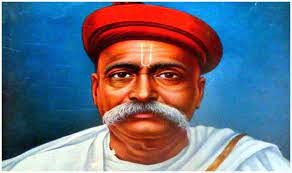
(Source: Wikipedia)
- Chandra Shekhar Azad:
- He was an Indian revolutionary who reorganized the Hindustan Republican Association in 1928.
- Chandrasekhar Azad was born on 23 July 1906 in Bhabra in Alirajpur district of Madhya Pradesh.
- He died on February 27, 1931, in Chandrasekhar Azad Park, Prayagraj, after being shot.
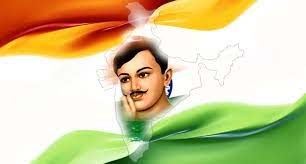
(Source: Wikipedia)
12. July 23: National Broadcasting Day
- National Broadcasting Day is celebrated in India every year on 23 July.
- On this day in 1927, a private Indian Broadcasting Company started the first radio broadcast in the country from a Bombay station.
- The greatest democracy India has its peculiarity of speaking power and freedom of expression.
- Radio is a strong example of freedom of expression as a broadcast medium.
- Currently, radio is an effective and reliable medium of knowledge, information and entertainment.
- Guglielmo Marconi, an Italian inventor, invented the radio in the 1890s.
13. July 26: Kargil Vijay Diwas (Fourth Sunday of July)
- The nation has paid tribute to the brave heroes on 26th July on the occasion of Kargil Vijay Diwas.
- This year there was only a wreath laying ceremony at the Drass War Memorial in Kargil.
- Kargil Vijay Diwas:
- The day is celebrated in 1999 to commemorate the success of Indian Armed Forces in Operation Vijay.
- On this day, the Indian Army freed the Kargil sector from Pakistani intruders.
- Lieutenant General YK Joshi, a senior army officer in the northern region, winner of the Vir Chakra award, was a commanding officer in Operation Vijay in 1999.
- YK Joshi himself made several attacks, forcing the enemy to leave Indian Territory.
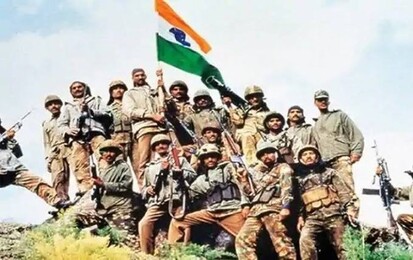
14. July 28: World Hepatitis Day
- The day is observed every year on 28 July to increase awareness regarding viral hepatitis.
- The day commemorates the birth anniversary of Nobel-prize winning scientist Dr Baruch Blumberg, who discovered the hepatitis B virus (HBV). He also developed a diagnostic test and vaccine for the virus.
- Hepatitis is a viral disease that is an inflammation of the liver that causes a range of health problems.
- There are five main strains of hepatitis virus – A, B, C, D and E. The most common causes of deaths are Hepatitis B and C.
- 9,00,000 deaths per year are caused by hepatitis B virus infection, and 325 million people are living with viral hepatitis B and C.
- WHO aims at eliminating viral hepatitis as a public threat by 2030.
- 2020 Theme: “Hepatitis-free future”
15. July 28: World Nature Conservation Day
- The day is celebrated globally on 28 July to enhance awareness regarding the best practices to protect natural resources.
- The day recognizes the need for a healthy environment for a productive and stable society.
- “Conservation is not merely a question of morality, but a question of our own survival” - Dalai Lama
16. July 29: International Tiger Day
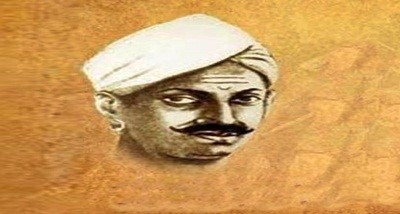




 Latest
Latest 



Comments